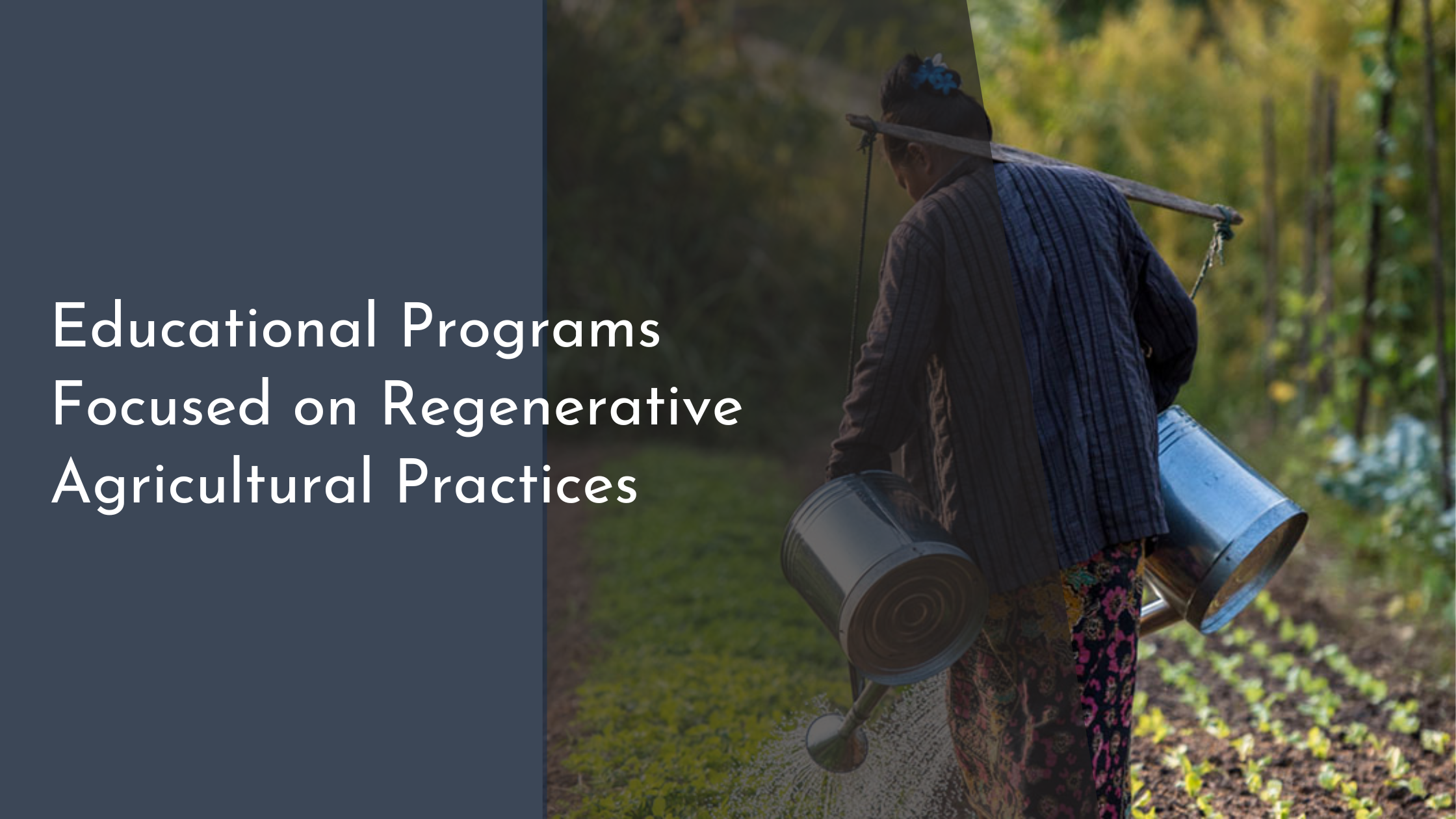Educational Programs Focused on Regenerative Agricultural Practices
In recent years, there has been a growing awareness about the importance of sustainable farming practices in combating climate change and ensuring food security. Among these practices, regenerative agriculture stands out for its holistic approach that emphasizes restoring ecosystems, enhancing biodiversity, and improving soil health. Educational programs focused on regenerative agricultural practices are being developed worldwide to help farmers, agronomists, and environmental enthusiasts understand and implement these transformative methods. In this article, we’ll delve into the basics of regenerative agriculture, explore the key components of educational programs, share inspiring success stories from around the globe, and look to the future of regenerative education.
Understanding Regenerative Agriculture Basics
Regenerative agriculture is a system of farming principles and practices that seeks to rehabilitate and enhance the entire ecosystem of a farm. By focusing on soil health, water management, and biodiversity, regenerative agriculture aims to create agricultural processes that are both sustainable and beneficial to the environment. It involves practices such as cover cropping, reduced tillage, composting, and agroforestry, all designed to enrich the soil, increase biodiversity, and promote ecological balance. Rather than merely sustaining the current state of the land, regenerative agriculture aims to improve it, offering a promising solution to the environmental challenges faced by traditional farming practices.
The foundation of regenerative agriculture lies in its ability to increase soil organic matter, which in turn improves water retention, reduces erosion, and enhances nutrient cycling. This approach not only aids in reversing climate change by sequestering carbon from the atmosphere but also leads to higher crop yields and healthier plants. Understanding these fundamental principles is essential for anyone looking to transition to regenerative practices. Therefore, educational programs are structured to provide a deep understanding of these concepts, preparing individuals to implement and advocate for regenerative methods in their farming or environmental conservation efforts.
Key Components of Educational Programs
Educational programs focused on regenerative agriculture typically include a comprehensive curriculum that covers both theoretical knowledge and practical skills. These programs begin with foundational courses on soil science, ecosystem dynamics, and the principles of agroecology. Participants also learn about the social and economic aspects of regenerative agriculture, such as market access, food sovereignty, and community engagement. By providing a holistic education, these programs equip learners with the tools needed to address both the environmental and social dimensions of agriculture.
In addition to classroom instruction, hands-on learning is a crucial aspect of these educational programs. Fieldwork and practical demonstrations allow participants to see regenerative practices in action, such as implementing permaculture designs, managing diverse cropping systems, and creating compost. These experiential learning opportunities are vital for reinforcing theoretical knowledge and building the confidence necessary to apply regenerative practices in real-world scenarios. Many programs also encourage peer learning and networking, fostering a community of like-minded individuals committed to advancing regenerative agriculture.
Success Stories from Around the World
There are numerous success stories from around the world where educational programs in regenerative agriculture have made a significant impact. In Africa, for instance, organizations like the Savory Institute have worked with local communities to restore degraded lands through holistic management training. These programs have empowered local farmers to increase productivity while simultaneously improving the health of their soils and surrounding ecosystems. As a result, many African nations are now seeing a resurgence in agricultural productivity and ecological health.
In South America, the work of educational institutions like the Regenerative Agriculture Institute in Brazil has led to transformative changes in farming practices. By educating farmers on the benefits of agroforestry and sustainable land management, these programs have helped increase biodiversity and improve soil fertility across vast areas. This, in turn, has contributed to greater resilience against climate change impacts, such as droughts and floods, and has enhanced food security for local communities. These success stories serve as inspiring examples of how education can drive sustainable agricultural transformation globally.
The Future of Regenerative Education Programs
Looking to the future, regenerative education programs are poised to expand and evolve, incorporating new technologies and methodologies. The integration of digital tools such as remote sensing, precision agriculture, and data analytics is expected to enhance learning experiences and provide deeper insights into ecosystem health. Online platforms and virtual reality simulations may also become more prevalent, making regenerative education accessible to a broader audience, including those in remote areas or with limited resources.
Furthermore, partnerships between educational institutions, governments, and non-profit organizations will be essential in scaling these programs and increasing their impact. By fostering collaborations and sharing best practices, stakeholders can ensure that regenerative education remains relevant and effective in addressing global agricultural challenges. The future of regenerative education is bright, with the potential to empower the next generation of farmers, scientists, and environmental advocates to create a sustainable and thriving planet.
As we continue to face pressing environmental challenges, the importance of shifting towards sustainable farming practices cannot be overstated. Educational programs focused on regenerative agriculture offer a pathway to achieving not only environmental sustainability but also social and economic resilience. By equipping individuals with the knowledge and skills needed to implement regenerative methods, these programs play a crucial role in transforming the global agricultural landscape. As more people embrace these principles and practices, we can look forward to a future where agriculture contributes positively to the health of our planet and its inhabitants.

